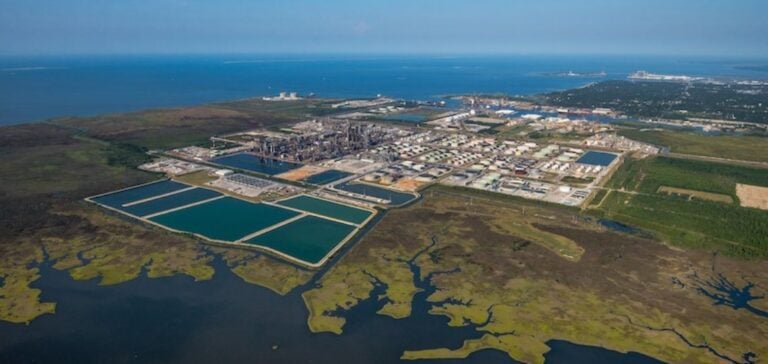Francine, the fast-forming tropical storm, is heading for the central U.S. Gulf coast with high winds and heavy rainfall.
Its expected impact on critical infrastructure, such as refineries and offshore production platforms, could lead to major disruptions in energy supplies and influence regional markets.
Direct threat to refining and production capacity
Refineries along the Louisiana coast, particularly those in Calcasieu Parish, which account for around a third of the state’s coastal refining capacity, are taking precautionary measures against the risk of high winds and flooding.
These sites, like Westlake, with a capacity of 264,000 barrels per day (b/d), are closely monitoring the storm’s progress.
Other refining facilities further east and west are also preparing for a possible impact.
Offshore platforms in the Gulf, currently producing around 1.8 million b/d of crude and 1.9 billion cubic feet per day of natural gas, are also on high alert.
Several operators, such as Chevron and Shell, have already evacuated non-essential personnel and suspended certain drilling operations.
These precautions are designed to limit the risks to infrastructure and people.
Expected impact on energy markets and infrastructures
Energy markets react to Francine threat.
Gulf Coast gasoline prices rose, fueled by fears of potential disruptions.
The NYMEX October contract for RBOB rose, a direct consequence of the uncertainty surrounding the storm.
These price fluctuations reflect typical market reactions to major weather events likely to disrupt generation and distribution.
Power grid operators are also anticipating a drop in electricity demand, in line with previous storms.
Peak load reductions of up to 18.5% have been observed in areas affected by recent hurricanes, mainly due to power outages and reduced use of air-conditioning systems.
Operator preparation and crisis management
Major network and infrastructure operators, such as Entergy, are implementing crisis management protocols to ensure the safety of their facilities and minimize service interruptions.
Thousands of extra workers have been mobilized to restore services following the storm, and emergency plans are being activated for nuclear power plants such as Waterford 3 and River Bend in Louisiana.
At the same time, local and federal authorities, notably the Federal Emergency Management Agency (FEMA), have issued preparedness and evacuation notices for the areas most at risk.
Political players, such as Senator Bill Cassidy, are calling for a federal declaration of emergency to enable a faster, more coordinated response.
Impact scenarios and short-term projections
Francine’s impact on the Gulf energy sector will largely depend on its final trajectory.
A landfall further west, near the Texas coast, could have a greater impact on production and refining infrastructures, increasing price volatility and requiring emergency response.
If the storm heads further east, critical facilities could be spared, but significant local effects, such as flooding and outages, remain likely.
Operators and market analysts are keeping a close eye on developments, as the Gulf energy industry’s ability to respond and adapt will be tested in the face of this new climatic event.






















